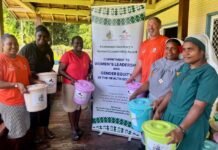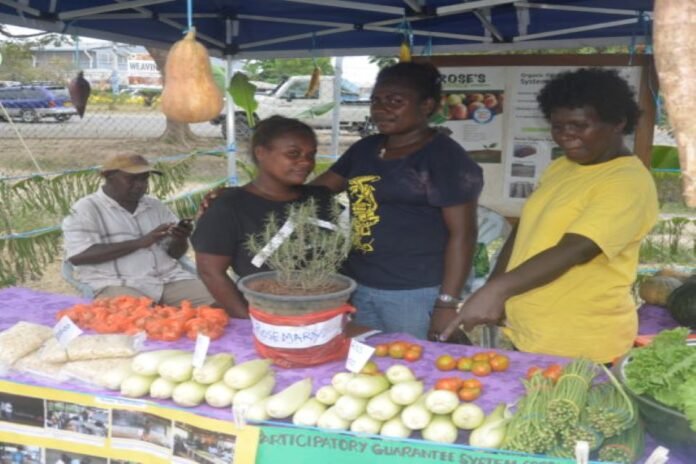ORGANIC farming might not be a new agricultural concept in the country. However, the concept and practice have been an ongoing passion for local farmers at Zai Na Tina Centre for Organic Systems (ZNT) in Honiara.
As a farmer support organization, the Centre has provided valuable service and expertise to local farmers in the country. It operates an organic demonstration farm within Honiara.
According to a local farmer and staff of the Centre, Jelda Ghemu, artificial chemical fertilizers are prohibited – instead of organic, we develop healthy, fertile soil by growing and rotating a mixture of crops, adding organic matter such as compost or manure to the soil.
“Pesticides and weedicides are severely restricted – instead we develop nutrient-rich soil to grow strong, healthy crops and encourage natural controls such as beneficial insects to help manage pests and disease and ground covers to manage weeds,” she told Solomon Women.
Zai Na Tina Farm Centre was established in 1993 with the mission to promote, demonstrate, and provide research on organic or natural methods of growing food. It is located at Burns creek community in East Honiara.
The farm is the Centre for an organic system, organic farm, and organic produce market. It provides training in organic and sustainable farming systems and conducts on-farm sustainable organic production research including internship programs for young prospective farmers.
The female farmer described working at the farm as incredibly fruitful and has gained a lot of knowledge and skills.
“Working at Zai Na Tina completely changed my overall perspective in modern farming methods and to become more focused on organic farming methods.
“I learned to become a good farmer especially on how to plant crops using just organic matter, which is healthy and free from the chemical substance,” she said.
Over the past years, Jelda has also been an active and vocal member of the organic produce market. Her job was to create awareness about organic farming and to provide a choice for health-conscious customers.
According to other sources, organic farming methods offer the best, currently available, practical model for addressing climate-friendly food production.
“This is because it is less dependent on petrochemical-based fertilizers and pesticides and builds resilience in the face of climatic extremes and changes. It also stores higher levels of carbon in the soil.
“The conclusion was that food items from organic farms had way more nutrients than those sourced from commercial or conventional farms.
“The study went further to substantiate those five servings of these fruits and vegetables from organic farms offered sufficient allowance of vitamin C.
“However, the same quantity of fruits and vegetables did not offer the same sufficient allowance.”










































